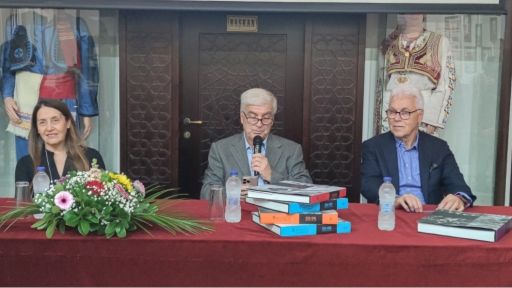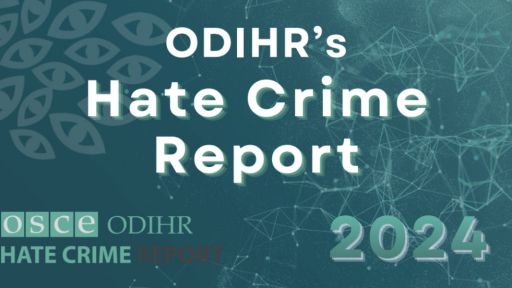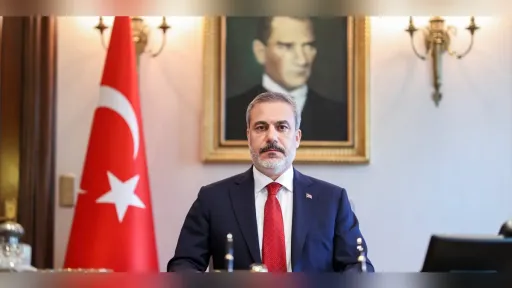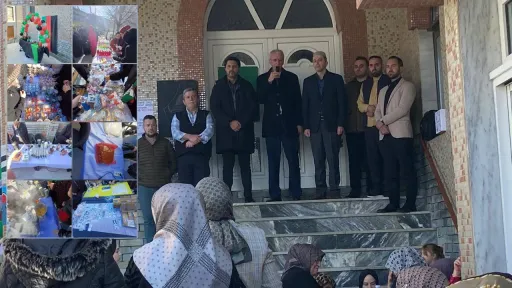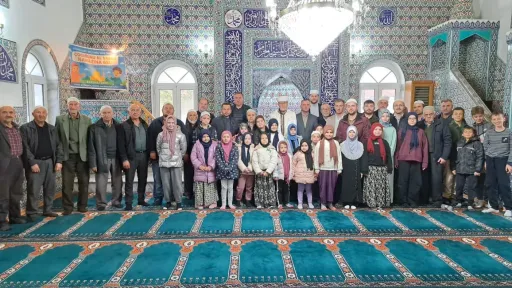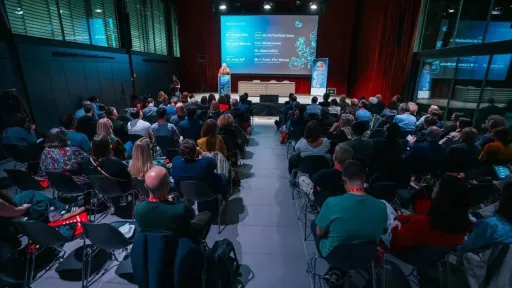Special meeting on education issues of the Turkish Minority in Western Thrace held with participation of ELEN

Hosted by the Association of Western Thrace Minority University Graduates (WTMUGA), the meeting brought together representatives from the Western Thrace Turkish Teachers’ Union (BTTÖB), Western Thrace Minority Culture and Education Company (BAKEŞ), the Association of School Boards of Western Thrace Turkish Minority Schools, the School Boards of the Xanthi Turkish Minority Secondary School and High School, the Xanthi Central Turkish Minority Primary School, and the Friendship, Equality, Peace (FEP) Party.
The focus of the meeting was to present the educational challenges faced by the Turkish community in Western Thrace at the preschool, primary, and secondary education levels, in collaboration with ELEN—an organization that advocates for linguistic equality and human rights for speakers of regional, minority, or endangered languages across Europe.
During the discussions, representatives highlighted how the educational autonomy guaranteed by the 1923 Treaty of Lausanne for the Turkish Minority has been steadily dismantled through various laws, regulations, and arbitrary practices. Specific attention was given to the issue of bilingual kindergartens. Representatives explained that their demands to establish bilingual kindergartens under a private and autonomous framework have consistently been rejected by Greek authorities, resulting in Turkish children being compelled to attend state-run kindergartens where only Greek is taught.
The Turkish representatives also alleged that the Greek state has deliberately undermined the autonomous structure by taking control of the administration and functioning of minority schools, thereby lowering the quality of education. They cited issues such as teacher appointments, diminishing authority of school boards, and challenges in implementing bilingual curricula. They noted a drastic drop in the number of Turkish primary schools—from 307 at the time of the Lausanne Treaty to only 86 today—largely due to austerity measures applied without exception to minority schools.
At the secondary level, issues surrounding the lack of a new school building for the Xanthi Turkish Minority Secondary School and High School were also discussed in detail.
ELEN President Elin Jones and Secretary-General Davyth Hicks condemned the current state of education for the Turkish Minority in Greece as “anachronistic and anti-democratic,” stating that it has no place in the 21st century. They also criticized Greece’s discriminatory policies toward minorities and minority languages, noting that the situation in Greece is worse than in France—often cited for its restrictive language policies.
ELEN leaders expressed their willingness to provide both national and international support to the Turkish community in Western Thrace in their struggle for equal and autonomous education.
